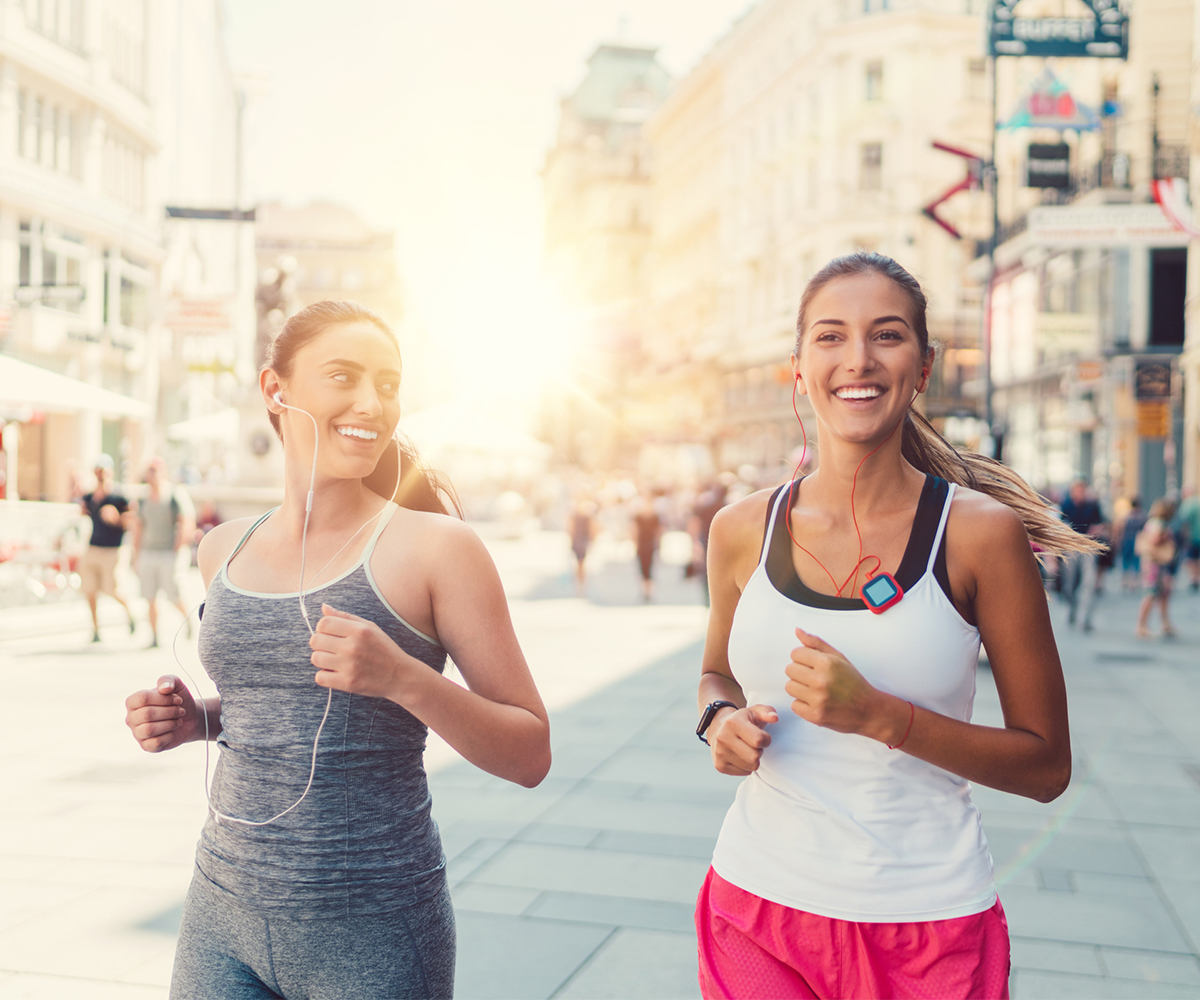From neuro-linguistic programming to reflexology, sometimes health speak can be full of jargon, or littered with new buzzwords you’ve never heard of.
Here, a comprehensive guide to staying healthy. Grab a pen and paper because it’s time to brush up on your ABC’s.

Woman writing on paper
Anxiety
Anxiety is on the rise in our country. According to the annual New Zealand Health Survey 2016/2017, 394,000 people were diagnosed with anxiety disorder – that’s 10.3 per cent of the population, up from 4.3 per cent a decade ago. And that’s only the diagnosed cases.
While serious anxiety issues require treatment such as medication and counselling, there are also proven benefits to keeping a gratitude journal, doing regular meditation or guided relaxations, and exercising at least three times a week to keep stress levels in check. (Source: Getty)
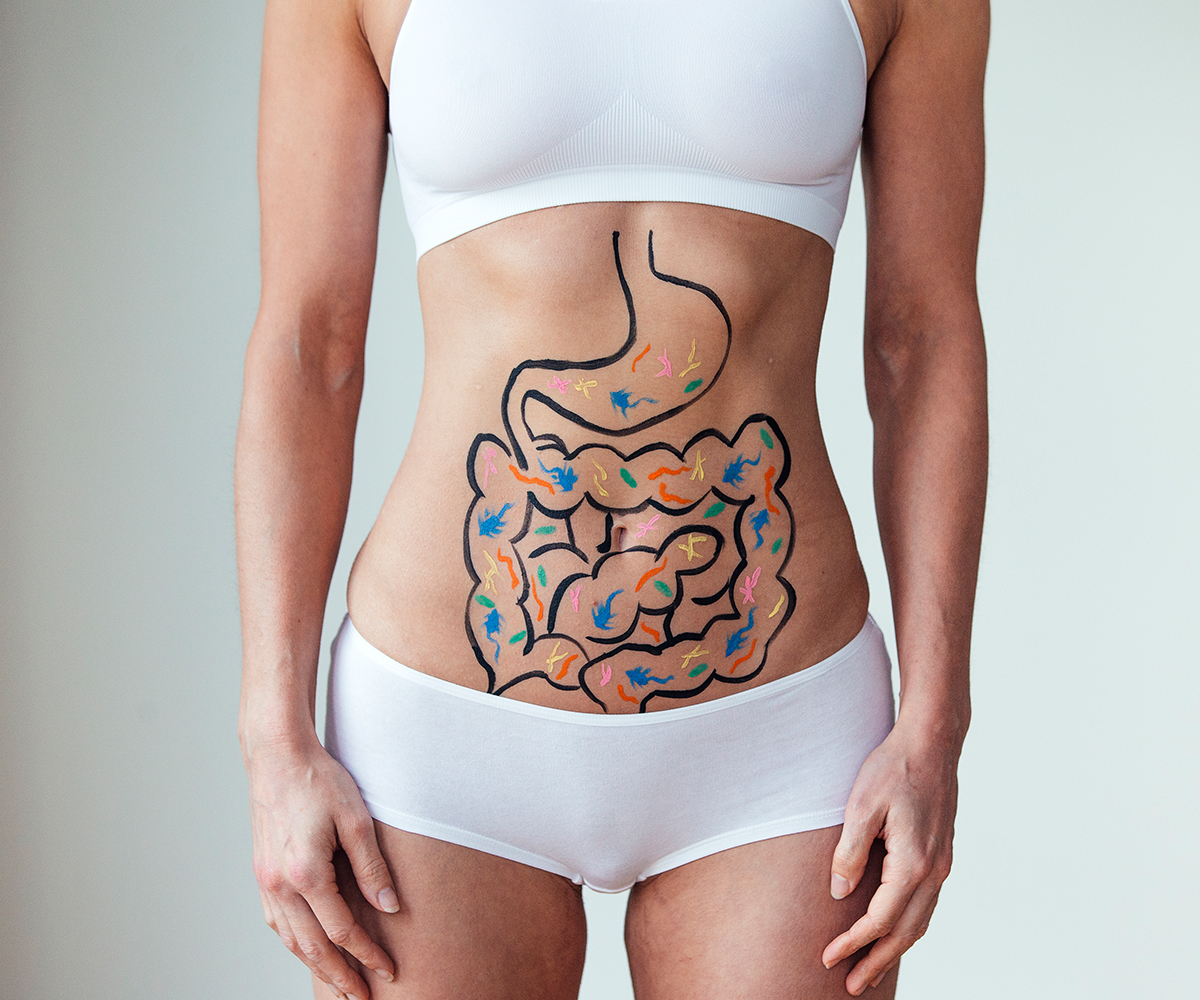
Digestive system drawn on stomach
Bowel Cancer
It’s no secret that the rates of bowel cancer in New Zealand make for some unsettling stats, and experts say it’s time we started talking about it.
According to the Ministry of Health, we have one of the highest bowel cancer rates in the world, and it’s the second highest cause of cancer death in New Zealand.
Common symptoms are: rectal bleeding without any obvious reason; a persistent change in bowel habits (eg going to the toilet more often or experiencing looser stools for several weeks), abdominal pain, lumps in the stomach, weight loss and tiredness (a symptom of anaemia). You can reduce your risk by getting screened and doing your best to live healthily. (Source: Getty)

illustration period vagina peaceful
Cervical Screening
Cervical cancer is one of the most preventable cancers, and regular screening is your best safeguard against it. Without cervical screening about one out of every 90 women will develop cervical cancer, compared to one out of 570 with screening.
Since the national screening programme started, the number of women who die of cervical cancer has dropped by nearly two thirds, but a Kiwi study found only 13 per cent of the women diagnosed with cervical cancer had undergone regular screening. Women aged 20-70 should have regular smear tests every three years.

Mother and daughter insulin reading
Diabetes
In New Zealand, it’s estimated that the number of people with diabetes exceeds 200,000. Currently, diabetes sufferers fall into one of two categories: type one or type two.
But researchers at Lund University Diabetes Centre in Sweden and the Institute for Molecular Medicine Finland – who conducted a study involving 14,775 patients – think diabetes may actually be five separate diseases: Cluster 1 (severe autoimmune diabetes); Cluster 2 (severe insulin-deficient diabetes); Cluster 3 (severe insulin-resistant diabetes); Cluster 4 (mild obesity-related diabetes); and Cluster 5 (mild age-related diabetes). This could have huge implications for treatment in the future. (Source: Getty)

Two women exercising in summer field
Exercise
It’s generally agreed that exercise is an important part of maintaining a healthy lifestyle. And it seems the earlier you start, the better.
A study from the Liggins Institute at the University of Auckland says exercise in early life can counteract some of the damaging effects of a high-fat diet.
The researchers found that bones retain a ‘memory’ of the effects of exercise long after a workout ends, and this bone memory continues to change the way the body metabolises a high-fat diet. The best part is these positive changes may continue way into midlife.
(Source: Shutterstock)

Grocery basket full of healthy food vegetables
Food Labelling
When it comes to getting the right fuel, reading ingredients labels and looking out for food with the least amount of chemicals and additives is a cornerstone of smart nutrition. And as we know, whole real food is our best choice for optimum health.
Food Standards Australia New Zealand requires ingredients to be listed on labels in descending order, meaning that when the food is manufactured, the first ingredient listed is the one present in the largest amount and the last listed contributes the least. Obviously food advice varies enormously, but it’s safe to say if the first ingredient listed is sugar, it might not be the wisest choice. (Source: Getty)

DNA Genetic health and exercise
Genomic Sequencing
Our DNA is so important in determining personal health solutions, and genomic analysis is what gives us that clear picture, so we can devise a plan that works for each of us as an individual.
While the Human Genome Project took from 1990 to 2003 to complete, things have moved much faster in recent times and now a company called Oxford Nanopore has developed a handheld device for $1000 that can sequence the human genome in real time.
A future where personalised medicine is the norm is suddenly looking a lot closer.
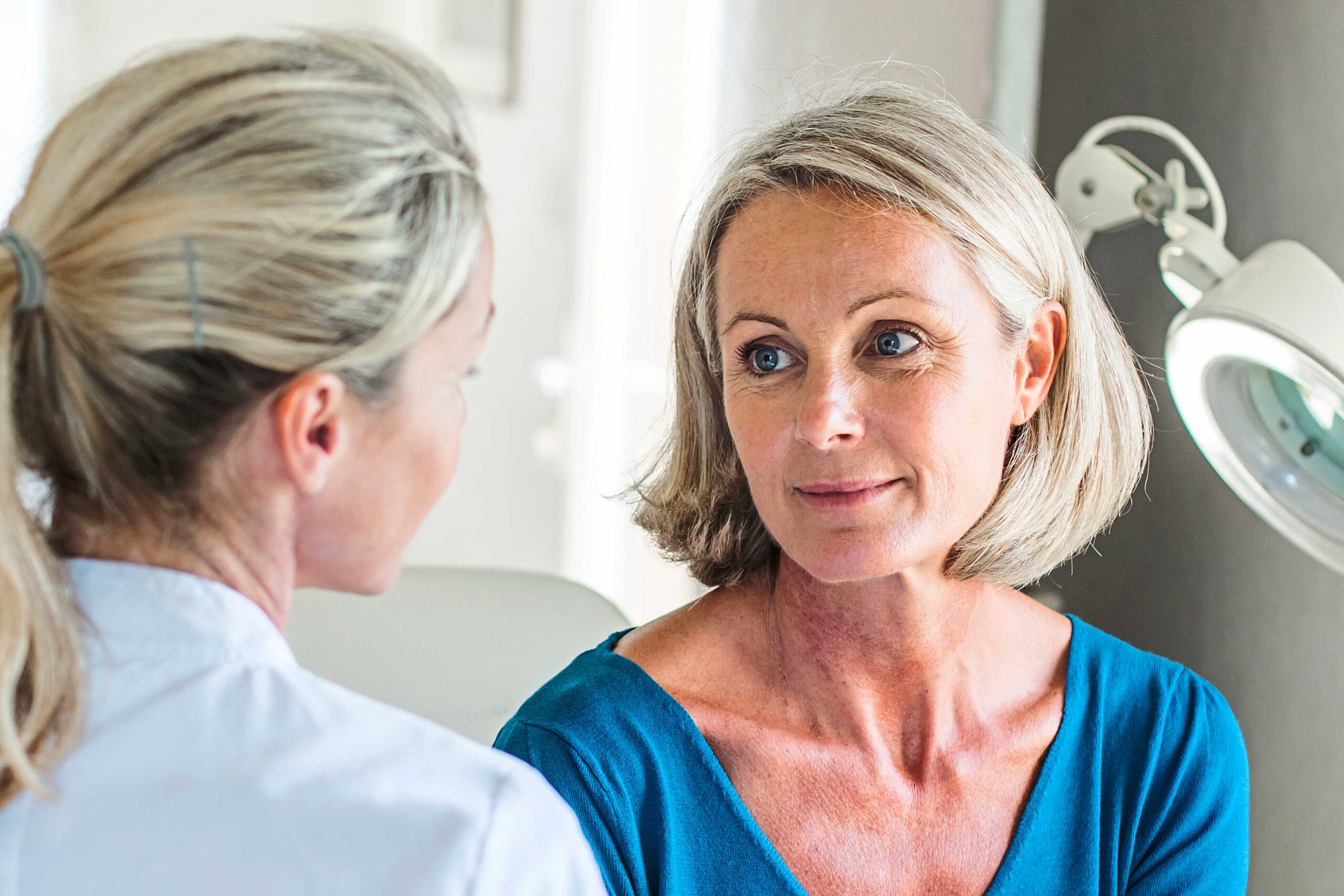
Middle aged woman talking to doctor
HRT
Hormone replacement therapy (HRT) is medication containing female hormones to replace those the body no longer makes naturally after menopause. It’s used to treat common symptoms of ‘the change’.
It recently made headlines, however, after results from the Million Women Study, the Women’s Health Initiative Study and the Nurses’ Health Study showed that women taking combined hormone replacement therapy (with both oestrogen and progestogen) had an increased risk of breast cancer during use and for two to five years afterwards. Oestrogen-only HRT, however, showed little or no change in breast cancer risk.
When weighing up the risks it’s important to note that results show there is still a stronger link between breast cancer and obesity, and breast cancer and excessive alcohol consumption than there is between breast cancer and combined HRT. Speak to your GP if you have any concerns. (Source: Getty)
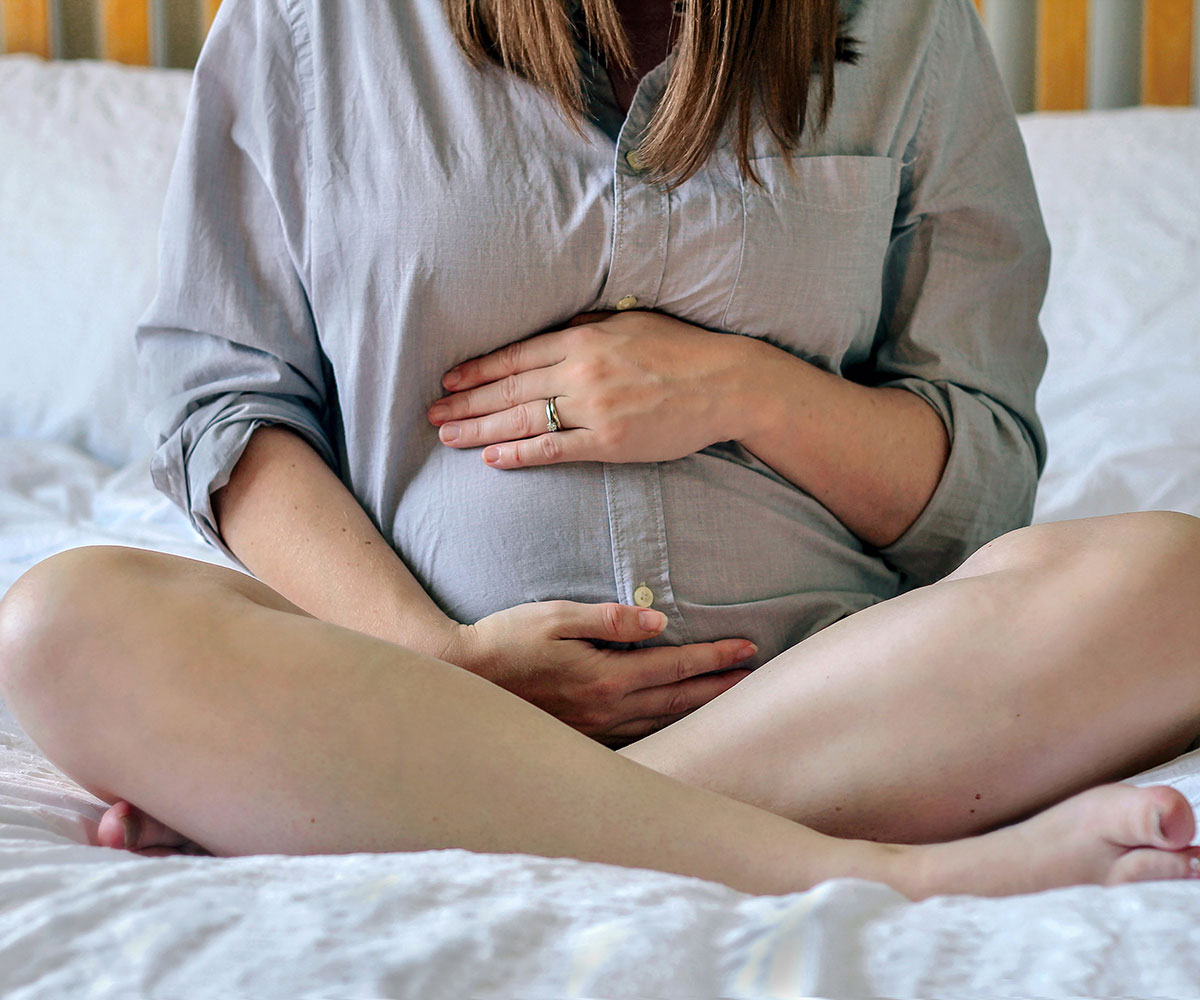
Pregnant woman being cradled
IUI (Intrauterine Insemination)
Research at Auckland University has found intrauterine insemination (IUI) combined with clomiphene – medication used for women who do not ovulate – is three times more effective than continuing to try to get pregnant without treatment.
Although this procedure (where sperm are injected directly into the uterus) is nothing new, there have been no studies, until recently, to prove its effectiveness.
A total of 201 couples were involved in the study between March 2013 and May 2016. Half continued to try to get pregnant naturally, while the others were given up to three IUI cycles. In total, the IUI group had 31 live births, compared to nine in the other group. (Source: Getty)

Health supplements pills
Joint Health
When winter sets in, many people with painful joints really start to feel an increase in symptoms. While research is still taking place into how to help those with debilitating joint issues, there’s a growing belief that vitamin E and C, glucosamine, chondroitin and essential fatty acids could be helpful to sufferers.
Arthritis Research (ARC) in the UK gave fish oil derived from fatty fish such as sardines and salmon the maximum score of ‘five’ for effectiveness. Sardine sandwiches might not win over your colleagues but there’s some hope that eating them might help reduce joint pain. (Source: Getty)

Leg being massaged kinesiology
Kinesiology
This holistic therapy uses muscle testing to reveal energy flows throughout the body, and identify the underlying causes of health issues.
Kinesiologists say it’s crucial to get to the root of the problem so the body can heal itself. The practitioner applies light pressure to a muscle and gauges the response. They then tell you what they believe is most likely to bring the bodyback into balance. (Source: Getty)

Woman clutching stomach gut problems
Leaky Gut Syndrome
While mainstream medicine doesn’t officially recognise it, many alternative therapists believe that cells in the gut lining can become inflamed and damaged and refer to this as leaky gut syndrome.
When this happens, they argue, undigested food, bacteria and toxins can pass directly into the bloodstream through the now bigger gaps, potentially causing an autoimmune response.
Holistic practitioners suggest dietary aids such as bone broth, sprouted grains, coconut products and fermented vegetables will help close up the gaps in the lining. (Source: Getty)

Bottle of magnesium pills
Magnesium
Magnesium is an essential mineral for general good health, affecting every cell in our bodies. According to a new meta-analysis by researchers from Zhejiang University and Zhengzhou University in China, a diet rich in magnesium may reduce the risk of diseases including coronary heart disease, stroke and type 2 diabetes.
This analysis of the evidence on health outcomes involved data from more than one million people across nine countries. They found people in the highest category of dietary magnesium consumption had a 10 per cent lower risk of coronary heart disease, 12 per cent lower risk of stroke and a 26 per cent lower risk of type 2 diabetes compared to those in the lowest category.
Their results also indicate that an extra 100mg per day of dietary magnesium could reduce risk of stroke by 7 per cent and type 2 diabetes by 19 per cent. (Source: Getty)

Woman being comforted by Dr
Neuro-Linguistic Programming (NLP)
Neuro-linguistic programming is an interesting therapy for those with stress-related health problems, as it deals with underlying thought patterns you may not even know you have.
It is a non-invasive therapy designed to alter behaviour by reprogramming unconscious patterns of thought and is performed by NLP-only practitioners, sometimes as an add-on to hypnotherapist sessions.
Treatment varies from practitioner to practitioner but usually involves a one-on-one session where you explain what’s troubling you, and you learn how to identify and quickly change those patterns that aren’t serving you.
NLP still sits on the alternative side of health remedies, but many people claim to have gained excellent results from it. (Source: Getty)

Donuts and candy
Obesity
Increasingly widening waistlines is a dangerous trend in much of the Western world – and New Zealand is no exception.
According to the New Zealand Health Survey 2017/2018, 32 percent of adults were categorised as obese – that’s one in three adults – up from 27 percent in 2006/2007.
Obesity, is a major risk factor for cardiovascular disease, type 2 diabetes, and some musculoskeletal conditions and cancers. Healthy Families NZ is one initiative seeking to help families make better choices about their health. (Source: Getty)

Bowl of muesli being eaten
Probiotics
We’ve heard a lot about the benefits of probiotics for the gut over the past five-10 years but it’s not just about digestion.
Recent research shows that a probiotic given in pregnancy can help prevent or treat symptoms of postnatal depression and anxiety.
Over two years, the study looked at 423 women, all between 14 and 16 weeks pregnant; 212 women were given the probiotic, and 211 a placebo. The probiotics group had significantly lower depression and anxiety scores than the placebo group and rates of anxiety were half that of the placebo group. (Source: Getty)

Sunset Tai Chi Qi Dong
Qi gong
Qi gong, a type of traditional Chinese medicine thought to be at least 4000 years old, is based on the belief that the human body contains a network of pathways through which vital energy called qi (also called chi) circulates. You may have heard this theory if you’ve ever had acupuncture.
There are two main types of qi gong practice: internal and external. Internal qi gong is something you practise yourself using special meditation, subtle movement, visualisation, and breathing techniques. With the external type of qi gong, a practitioner projects qi into you with the aim of boosting circulation and improving overall health. (Source: Getty)

Bare foot walk on beach
Reflexology
Reflexology is a type of foot massage that focuses on specific pressure points on your sole that are said to connect to different organs, glands and energy systems in your body. Reflexology has reported benefits for a range of conditions including PMS and other hormone imbalances, sinusitis, sciatica and sleep disorders.
And now three studies funded by the National Cancer Institute (NCI) in the US have established the validity of reflexology as a therapy to reduce symptoms and enhance physical functioning for cancer patients.
Physical improvements in day-to-day living were recorded from regular reflexology compared to patients who only received a ‘placebo’ foot rub. (Source: Getty)

Sleeping woman grey
Sleep
Whether it’s too much Netflix, working late into the evening, or simply bad habits, many of us are getting less than the recommended amount of sleep.
But according to the National Institute of Neurological Disorders and Stroke in Washington, sleep is as essential to survival as food and water. Without it you can’t form or maintain the pathways in your brain that let you learn and create new memories, and it’s harder to concentrate and respond quickly.
Sleep affects almost every bodily tissue and system – from the brain, heart and lungs to metabolism, immune function, mood and disease resistance.
Research shows a chronic lack of sleep, or poor quality sleep, increases the risk of high blood pressure, cardiovascular disease, diabetes, depression and obesity, just to name a few.
So prioritise getting to bed at a reasonable time; your body will thank you for it. (Source: Getty)

looking at skin inspecting complexion
Telomeres
The ageing process all starts deep inside our cells. Within our cellular structure are chromosomes, which carry our genetic makeup, and on the ends of these chromosomes are protective caps made of protein; these are called telomeres.
Our telomeres shorten with age, meaning they can’t protect our chromosomes properly so our cells cannot replenish effectively. This is what impacts how we biologically age.
In their book The Telomere Effect, Elissa Epel and winner of the Nobel Prize for medicine Elizabeth Blackburn say that to stop our telomeres shortening – and therefore delay diseases associated with ageing – we need to improve our lifestyle. Specifically this means managing chronic stress, exercising, eating better and getting enough sleep. (Source: Getty)
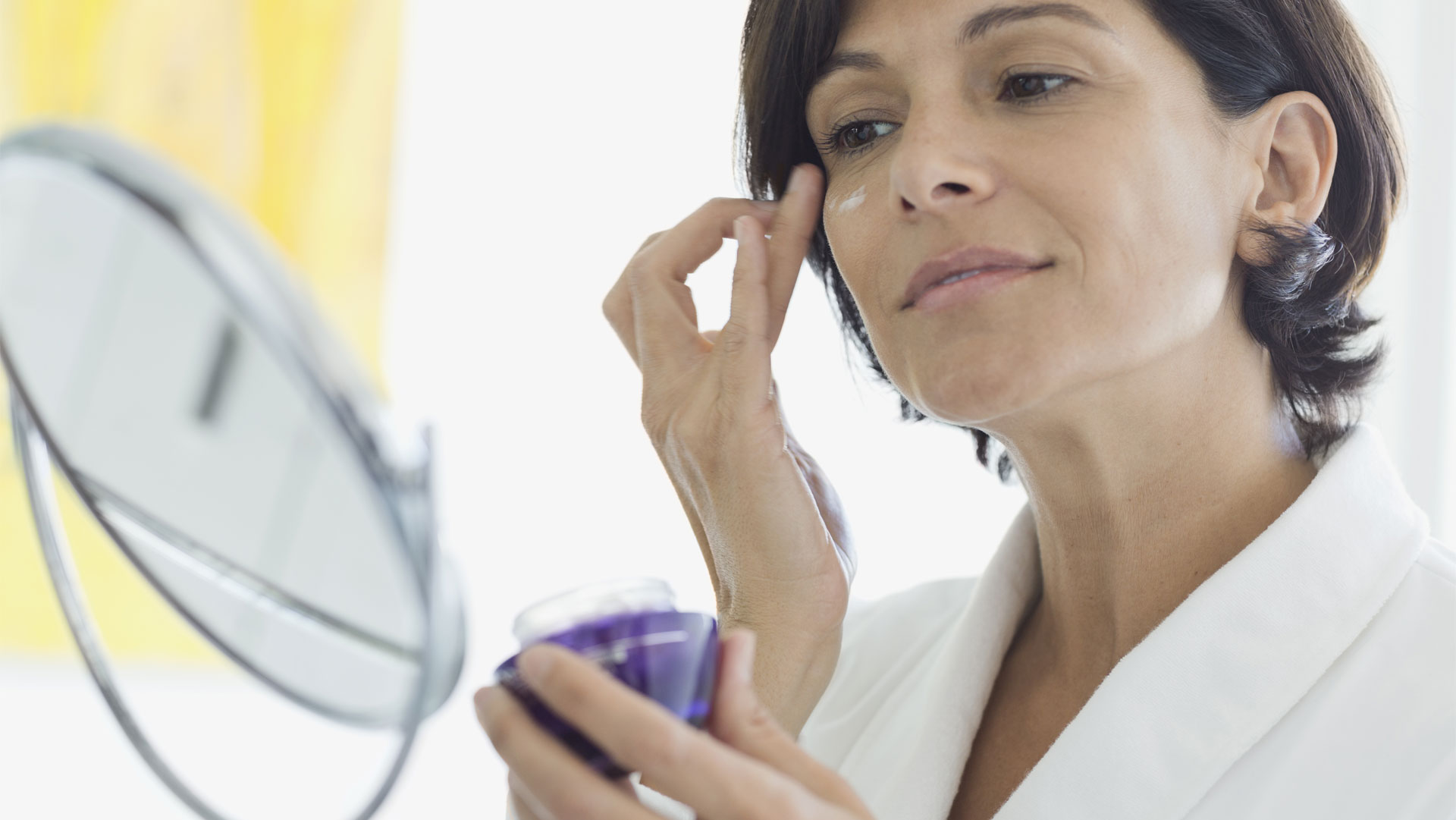
Ubiquinol
Ubiquinol
You may well have heard of CoQ10, an antioxidant supplement touted for its benefits for heart health and high cholesterol, among other things.
But Ubiquinol is a form of CoQ10 that is ‘fully reduced’, meaning it is more bioavailable. This helps the body absorb it in greater amounts, where it assists with multiple functions, including the neutralisation of tissue-damaging free radicals. (Source: Getty)

Vitamins mix of pills
Vitamin delivery
One of the latest trends in wellbeing is having vitamins specifically prescribed for you and delivered to your door, all individually packaged, to increase your chances of actually taking them!
You can sign up to a service online where you answer a questionnaire and have a pack made up according to what they think you might need. Your dose of different vitamins, addressing each of your personal needs, is then packaged up in a single bag for each day and delivered on a monthly basis. (Source: Getty)

Withania
Withania
Withania is a herb used frequently in Ayurvedic medicine, and it’s now becoming increasingly popular outside India too. Many medical herbalists here use it as a go-to for stress-related conditions as it’s said to be calming but non-stimulating.
Also known as ashwagandha, Indian ginseng and winter cherry, withania is often used to support convalescence and tackle general fatigue. It’s also thought to be especially useful for those experiencing periods of stress, anxiety and nervousness, and bouts of insomnia.(Source: Getty)

Asian woman drinking water after workout
Xenoestrogens
Synthetics xenoestrogens are widely used in industrial compounds like plastics, pesticides and resins and they may be harming our health.
It’s thought xenoestrogens can mimic the oestrogen we produce naturally, upsetting our internal balance of hormones.
While research is ongoing, it’s worth avoiding plastics containing BPA (reflected in the amount of companies moving away from its use in their manufacturing). (Source: Getty)
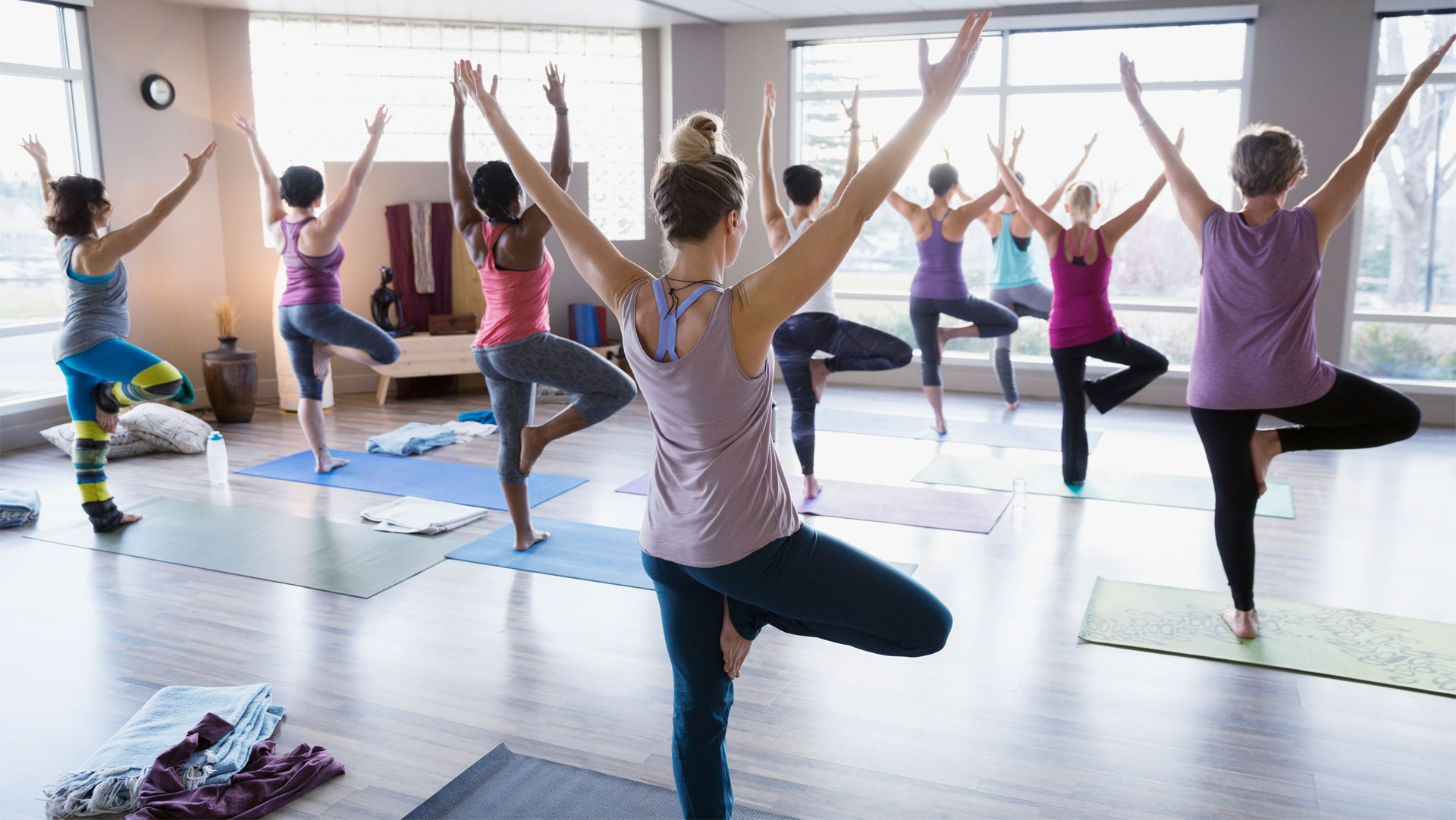
Line of people doing yoga grey
Yoga
Ever wondered if your downward facing dog was really having any benefit aside from learning how far your muscles can or can’t stretch?
It seems it could be, according to research from the American College of Cardiology. Heart disease patients who practised yoga in addition to aerobic exercise saw twice the reduction in blood pressure, body mass index and cholesterol levels when compared to patients who practised either yoga or aerobic exercise alone.
The study looked at 750 patients who had previously been diagnosed with coronary heart disease. One group of 225 patients participated in aerobic exercise, another 240 patients participated in Indian yoga, and a third group of 285 participated in both yoga and aerobic exercise.
The aerobic exercise only and yoga only groups showed similar reductions in blood pressure, total cholesterol, triglycerides, LDL, weight and waist circumference.
However, the combined yoga and aerobic exercise group showed double the reduction compared to the other groups. (Source: Getty)

Kids running and playing
Zinc
This trace mineral is important for a raft of functions including brain health, immunity and good skin, but recently scientists have discovered that zinc deficiency may have a role in the development of autism too.
A study of zinc concentrations in hair from more than 1900 children with autistic disorders found that nearly 50 per cent of those aged three and under had zinc deficiency.
The rate was around 28 per cent for children aged four to nine and dropped to around three per cent for those aged 10 to 15. It’s an exciting development in a condition that still baffles the medical profession in so many ways. (Source: Getty)
